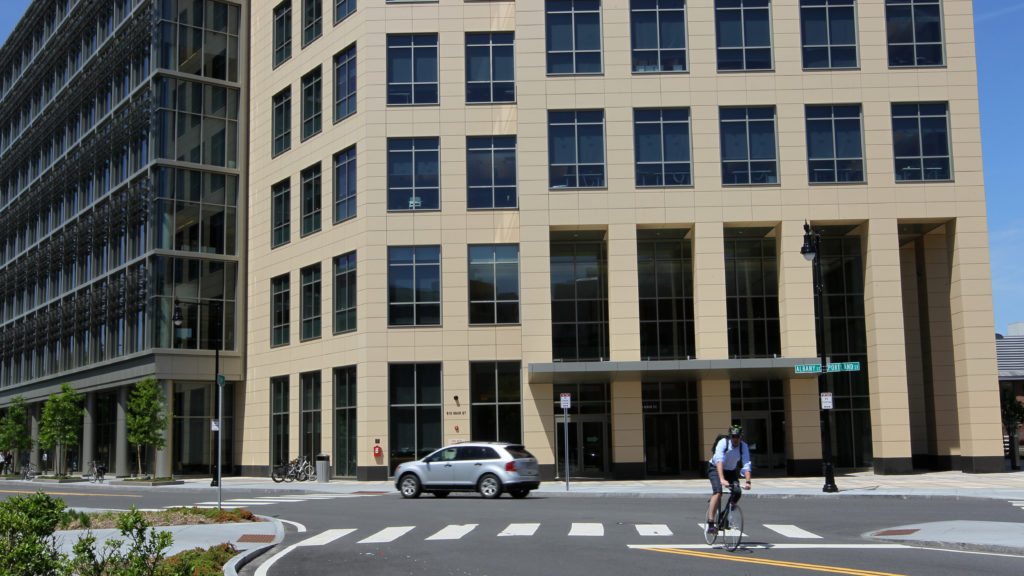This story first appeared in The Readout newsletter. Sign up for The Readout and receive STAT’s award-winning biotech news delivered straight to your inbox.
Good morning. My colleagues are hosting a virtual event on LinkedIn today (at 1 pm ET) about how President-elect Trump’s administration could transform health care and biotech. Check it out here.
advertisement
Onto the biotech news today.
AbbVie’s big bet on neuroscience has yet to pay off
AbbVie yesterday announced that a schizophrenia treatment that was the centerpiece of its $9 billion acquisition of Cerevel failed in two key trials. The good news is that hardly marks its last opportunity to make strides in neuroscience, a field that the company has increasingly pivoted toward. The bad news is that the effort might not get any easier.
The company’s next big test will be a readout of an Alzheimer’s therapy that it’s collaborating on with Alector Therapeutics. Phase 2 trial results of the drug, which is based on a mechanism that’s different from those used by existing treatments, are expected before the end of the year.
advertisement
AbbVie also recently announced a $1.4 billion acquisition of a private biotech called Aliada Therapeutics, which is developing therapies that can cross the membrane known as the blood-brain barrier.
That deal “was pretty re-affirming that AbbVie’s here to stay in these high-risk, high-reward neuro areas,” one analyst said.
AstraZeneca had to resubmit cancer drug for approval
AstraZeneca said this morning it has had to resubmit a closely watched medicine for FDA approval in a different form of lung cancer, a step that will delay the drug’s arrival on the market and add questions about how widely it could be used.
The medicine, datopotamab deruxtecan, or Dato-DXd, is an antibody-drug conjugate that AstraZeneca is partnered with Daiichi Sankyo on. AstraZeneca has cited it as one of the products that will help it achieve its goal of nearly doubling its revenue to $80 billion by 2030.
Read more from STAT’s Drew Joseph.
23andMe ends its drug discovery dream
23andMe said late yesterday that it would halt its efforts to develop drugs and lay off 40% of its workforce, focusing instead on selling genetic tests to consumers and using the resulting data for research.
In doing so, the company is ending an audacious bet it made nearly a decade ago — that it could use the genetic data it had collected not only to assist drug companies but to become one itself.
This comes at an incredibly tumultuous time for the company. Over the course of this year, stock in the company has plummeted 72%. CEO and co-founder Anne Wojcicki has been negotiating to secure financing to take the company private, but her board resigned en masse in protest in September.
Read more from STAT’s Matt Herper.
ALS startup launches with $101 million
A new company called Trace Neurosciences launched today with $101 million in Series A funding led by Third Rock Ventures. Atlas Venture, GV, and RA Capital Management also joined in.
The startup is developing a treatment targeting UNC13A, a gene linked to both a higher risk of ALS and faster disease progression. While companies developing ALS therapies have struggled over the past year, Trace’s leaders said they believe their therapy has the potential to treat the vast majority of ALS patients — as well as those with other brain disorders, such as frontotemporal dementia and Alzheimer’s.
The South San Francisco biotech expects to begin testing its lead drug candidate in clinical trials by early 2026.
Read more from STAT’s Jonathan Wosen.
When even an ‘over the wall’ PIPE can’t help
From my colleague Adam Feuerstein: Neurogene shares tumbled 35% last night after it disclosed that a pediatric patient with Rett syndrome experienced a severe side effect following treatment with a high dose of its experimental gene therapy. Details weren’t reported, except that the toxicity was “consistent with the known risks” of gene therapies delivered using adeno-associated viruses, or AAVs.
The company said it was made aware of the serious side effect “just a few hours” before making the announcement. One week ago, Neurogene provided a group of hedge fund investors confidential access to new data on its Rett syndrome gene therapy, and in return, the investors provided the company $200 million in PIPE financing, priced at $50 per share.
After the deal was announced on Nov. 4, Neurogene’s stock price rose more than 50% to $71 as investors outside the deal assumed the gene therapy data were positive. Neurogene yesterday said four patients with Rett treated with a low dose of its gene therapy showed consistent signs of improvement, but the efficacy update was overshadowed by the disclosure of the severe side effect. Neurogene shares fell to $46.
Pfizer sees promise of using wearables in drug trials
When Pfizer earlier this year announced positive results of its treatment for the muscle-wasting condition cachexia, the company reported an intriguing secondary endpoint: Treated patients had more non-sedentary activity per day, as measured by a wearable.
Digital endpoints using wearables or other devices have been explored by over 100 drug developers for their ability to provide new insights into how experimental treatments are impacting patients. But Pfizer’s latest results represent one of the most advanced efforts disclosed by a major drugmaker.
My colleague Mario Aguilar spoke with Carrie Northcott, head of digital sciences at Pfizer, to discuss the future of using wearables in drug research. The industry is near “a revolution of using these measures within clinical trials,” she said.
More reads
- FDA lifts clinical hold on Novavax’s combo Covid-flu shot, Reuters
- OpenAI isn’t built for health care. So why is its tech already in hospitals, pharma, and cancer care? STAT
- The War on Recovery: The recovery community says it offers refuge from opioid addiction. But it’s still hostile to lifesaving addiction medications, STAT

